Human life cannot thrive without a balanced and healthy ecosystem. The environment includes all living and non-living elements and the way they interact within a natural setting. Today, environmental conservation has become a crucial global concern, especially as we face the serious challenges of climate change and global warming.
With rapid industrialisation harming natural resources, sustainable development is now essential to protect the planet and secure our future.
In this blog, we will explore what environmental conservation means, why it is important, and the various methods through which we can protect and preserve our environment.
This Blog Includes:
- What is Environmental Conservation?
- Importance of Environmental Conservation
- What are the Methods of Environmental Conservation?
- Role of Government and Organisation
- Ways of Conserving the Environment
- Environmental Conservation Material for UPSC
- Books on Environment & Environmental Conservation
- Essays on Environmental Conservation
- Simple Ways You Can Help
- Future of Environmental Conversation
- FAQs
What is Environmental Conservation?
Environmental conservation is a practice that paves the way for protecting the environment and natural resources at the individual, organisational as well and governmental levels.
Various core environmental issues are taking a heavy toll on human lives. Ranging from overpopulation, hydrological issues, ozone depletion, and global warming to deforestation, desertification and pollution, all these issues pose a severe threat to the existence of humankind. Unless environmental conservation becomes an effective mass movement, it is futile to expect positive growth, especially in the age of digital media, which holds the potential to bring a revolution to save our planet from destruction.
Also Read: Speech on Climate Change For Students
International Day of Nature Conservation is held on the 28th of July around the world annually.
Importance of Environmental Conservation
In today’s world, working towards environmental conservation has become increasingly vital. The following points highlight the urgent need to protect the environment from further degradation:
- To reduce air, water and land pollution
- To facilitate the conservation of natural resources for our future generations
- To ensure the protection of biodiversity
- To implement sustainable development
- To restore the ecological balance
- To save our planet from the harmful repercussions of global warming
What are the Methods of Environmental Conservation?
Now that you are familiar with the meaning and importance of Environmental Conservation, let’s understand the core methods through which it can be effectively facilitated:
Forest Conservation
Plants and trees serve as vital sources of air, food, and various everyday products we rely on. Forests provide habitats for numerous living species, and even a small disruption to the ecosystem can lead to significant imbalances in the water cycle as well as the food chain. Thus, afforestation is amongst the core Environmental conservation and aims to plant more trees as well as save the existing ones from being cut down, as trees play a crucial role in maintaining the ecological balance.
The Global Day of Forests, celebrated internationally on 21 March, is an incentive to recognise the vital importance of forests for human and environmental wellbeing.
Soil Conservation
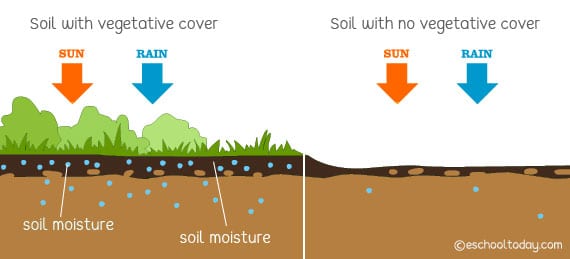
As one of the prominent methods for environmental conservation, the need for soil conservation has arisen to tackle the harmful effects of soil pollution. On Earth, the soil is the main element that plays a pivotal role in soil erosion, land degradation and floods. Soil is filled with rich nutrients for plant production. Soil conservation can be carried out by ensuring minimal use of fertilisers and venomous chemicals, as well as abolishing the disposal of harmful industrial waste in the soil.
Waste Management
Especially in developing countries and congested places, on a daily basis, a large amount of waste is thrown away recklessly on the streets and roads. The improper disposal of waste segregation can lead to various dreadful diseases as well as soil pollution.
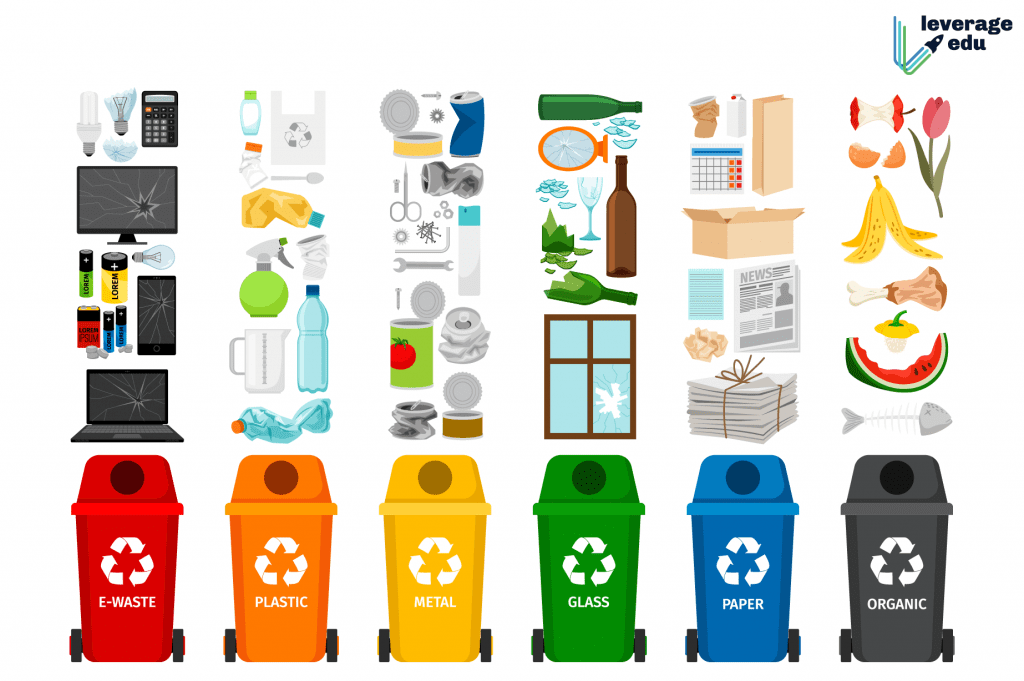
To ensure minimal wastage as well as facilitate waste disposal, we can opt for various techniques like the 3R’s, i.e. Reduce, Reuse and Recycle, dry and wet waste segregation, amongst others.
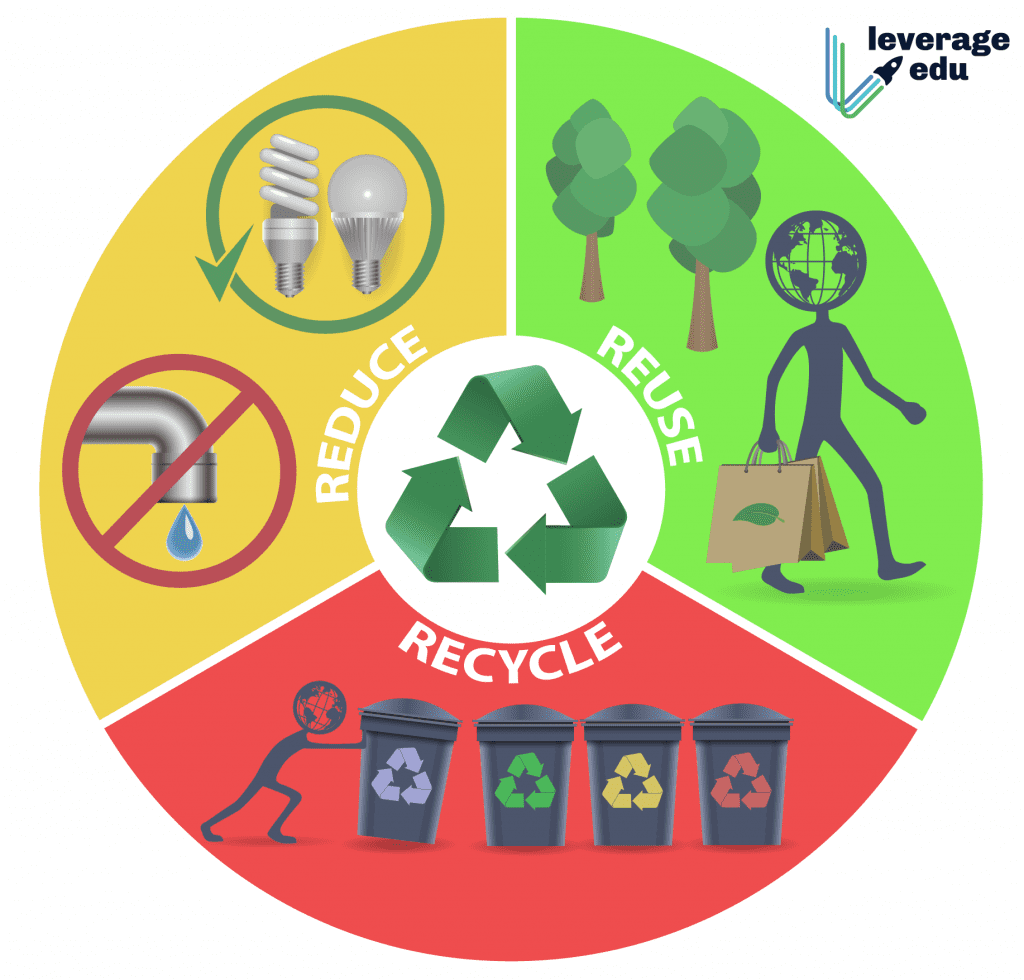
Public Awareness

With the boom of information technology and the advent of digital media, public awareness about environmental conservation can potentially yield promising results. It is crucial to raise public awareness about the harmful effects of environmental pollution and degradation. Additionally, every person should recognise their role in contributing to pollution and take actionable steps toward environmental conservation, whether by adopting greener energy sources or practising the 3Rs: Reduce, Reuse, and Recycle.
Every year on the 2nd of December, India observes National Pollution Control Day in remembrance of the memory of those who lost their lives in the tragic 1984 Bhopal Gas Tragedy.
Pollution Control
As the increase in temperature is concerning, there is a need to keep a watch on the toxic compounds we ingest that pollute the atmosphere. We need to adopt environmentally sustainable methods to minimise multiple forms of emissions, such as eliminating waste, saving electricity, limiting the unnecessary usage of fertilisers, insecticides and pesticides, and using energy-efficient appliances, among others.
“In nature’s economy the currency is not money, it is life.”
Vandana Shiva
Role of Government and Organisation
In environmental conservation, industrial action matters; large-scale change also requires support from government and organizations.
- Government Policies: Enforcing environmental laws and investing in renewable energy.
- NGOs and Activists: Spreading awareness and running conservation programs globally.
- Educational Institutions: Teaching students the value of sustainable and responsible living.
Ways of Conserving the Environment
Here are some ways of conserving the environment:
- Deforestation must be stopped
- Natural non-renewable resources must be utilised properly
- Every year, we lose a huge number of forest life due to forest fires. We must find a solution to this.
- Afforestation is the best way to conserve the environment
- Create public awareness
- Control pollution and population
- Recycle goods
- Adopt an environment-friendly lifestyle
- Adopt waste management techniques
- Species on the verge of extinction should be saved.
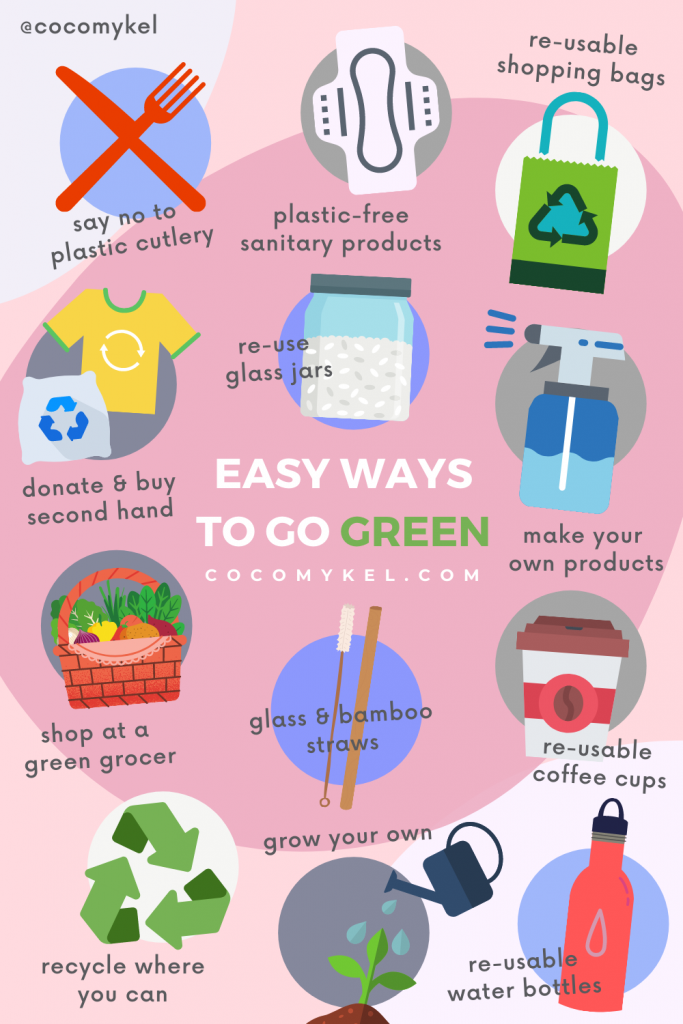
Environmental Conservation Material for UPSC
Although the environment or environment conservation syllabus for the UPSC Civil Services Mains exam is less, we still suggest our UPSC aspirants not to leave important topics on environment and environment conservation. Given below is a list of important topics and subtopics on the environment that you must study if you are preparing for the UPSC Civil Services Examination for the future:
- Conservation
- Conservation of Soil and Land
- Water and Energy Conservation
- Biodiversity and Environmental Conservation
- Conservation of other Natural Resources
- Water Conservation at Different Levels
- Energy Conservation
- Disaster and Disaster Management
- Disasters and Their Management
- Yojana on Disaster Management.
- Disaster Management Report (in brief)
- Environmental Pollution and Degradation
- National Environmental Issues
- Global Environmental Issues
- Environmental Pollution
- Pollution (in brief)
- Environment and Health
- Environmental Impact Assessment
- Environmental Legislation
- Environmental Related Institutions and Organisations
- Environmental Impact Assessment
Note: These materials are adequate for preparing the static portion of the syllabus’s environment-related subjects. Aside from the materials listed above, you must research current environmental issues in newspapers and publications. You may also study the above-mentioned topics by consulting the NCERT books.
Books on Environment & Environmental Conservation
| The Nature of Nature: Why We Need the Wild, By Enric Sala |
| The Medicine Wheel: Environmental Decision-Making Process of Indigenous Peoples, By Michael E. Marchand, Kristiina A. Vogt, Rodney Cawston, John D. et more. |
| Nature’s Best Hope: A New Approach to Conservation That Starts in Your Yard, By Douglas W. Tallamy |
| Live Sustainably Now: A Low-Carbon Vision of the Good Life, by Karl Coplan |
| Losing Earth: A Recent History, by Nathaniel Rich |
| Don’t Even Think About It: Why Our Brains Are Wired to Ignore Climate Change, by George Marshall |
“It’s hard to celebrate the world when it vanishes piece by piece, but I’m still an optimist. I’m sure it doesn’t pay to be too serious all the time, even about issues such as global warming.”
Simon Drew
Also Read: BSc Environmental Science
Essays on Environmental Conservation
Confused about how to write an essay on Environmental Conservation? Here are some samples to help you get started.
- Essay on Environment
- Essay on Save Environment
- Essay on Sustainable Development
- Essay on Global Warming
- Essay on Pollution
- Sustainable Management of Natural Resources
Simple Ways You Can Help
You don’t need to be a scientist or activist to make a difference. Here are some easy steps you can take:
- Reduce, reuse, and recycle: Cut down on plastic, reuse items, and take responsibility.
- Conserve Water: Turn off taps when not in use and use water-saving fixtures.
- Save Energy: Switch off lights and electronics when not needed.
- Plant Trees: Even one tree can absorb up to 22 kg of carbon dioxide each year.
- Support Eco-Friendly Brands: Choose products that are biodegradable, cruelty-free, and sustainably sourced.
- Use Public Transport or Carpool: This reduces pollution and saves fuel.
Future of Environmental Conversation
The future depends on what we do today. With advancements in free technology, better waste management, and stronger global cooperation, we can reverse some of the damage and build a sustainable world. Young people, especially, are becoming a powerful voice in environmental conversation. With the rise of eco-friendly startups and climate movements, there’s hope for a greener future.
FAQs
Environmental conservation refers to the practice of protecting and managing the natural environment to ensure its sustainability for future generations. It involves measures to preserve biodiversity, reduce pollution, and promote sustainable use of resources.
Here are some common methods for the same:
1. Use cotton bags and say no to plastic
2. Use less water and find ways to save water
3. Recycling
4. Waste Management
5. Sustainable development
Life is possible on Earth just because we have a perfect environment to live in. It is our responsibility to provide the same or a similar experience to the upcoming generation. To save life on Earth, it is essential to save the environment.
1. Environmental Conservation
2. Animal conservation
3. Marine Conservation
4. Human Conservation
The primary objectives of environmental conservation include:
– Preserving biodiversity.
– Preventing environmental degradation.
– Promoting sustainable resource use.
– Mitigating the effects of climate change.
Related Reads
Hence, we hope that this insightful blog on environmental conservation has helped you understand its importance and ways of conserving the environment from further deterioration. Planning to study Environmental Sciences? Sign up for an e-meeting with our Leverage Edu experts, and we will assist you in selecting the right course and university that fits your interests, skills and preferences.


 One app for all your study abroad needs
One app for all your study abroad needs











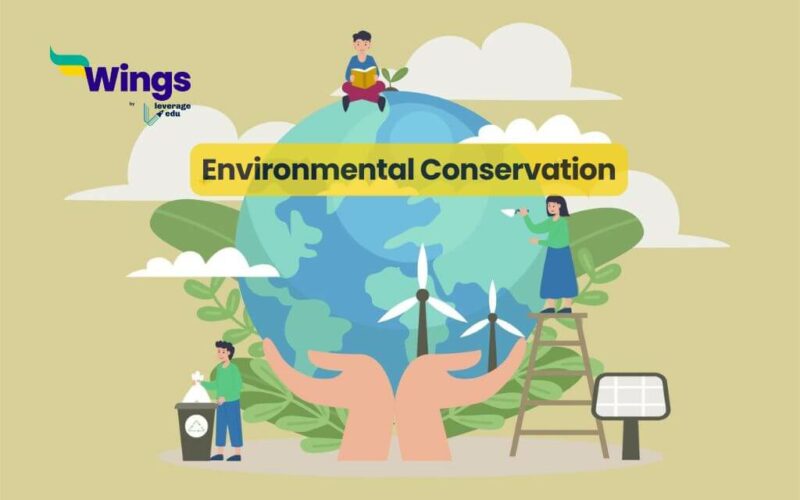

 60,000+ students trusted us with their dreams. Take the first step today!
60,000+ students trusted us with their dreams. Take the first step today!
13 comments
Very clear and helpful notes
Hi Charles,
Thanks for your feedback!
This is the format I was looking for !
Thank you LEVERAGE EDU
Hey Mohit!
We are happy to hear you liked our article. If you want similar content then please subscribe to our newsletter. We would truly appreciate it.
Thank you!
Nice answer
Hey Sushmita!
Thank you for your comment. If you enjoyed our blog on Environmental Conservation then do check out similar blogs like
https://leverageedu.com/blog/energy-conservation/
https://leverageedu.com/blog/environmental-science-courses/
It provides better knowledge for me
Thank you for your help
that’s really excellent
that’s really excellent👏👏👏👏👏
Hi Mary,
Thanks a lot for appreciating our blog on Environmental Conservation. Here are some amazing and interesting reads that you should try:
https://leverageedu.com/blog/environmental-movements
https://leverageedu.com/blog/environmental-management/
https://leverageedu.com/blog/msc-environmental-science/
Damn! This is really helpful for me . because I had an project on environmental conservation and it took me so long to decide a topic but this helped me a lot thank u
Hi Nikita,
Glad the blog helped you!